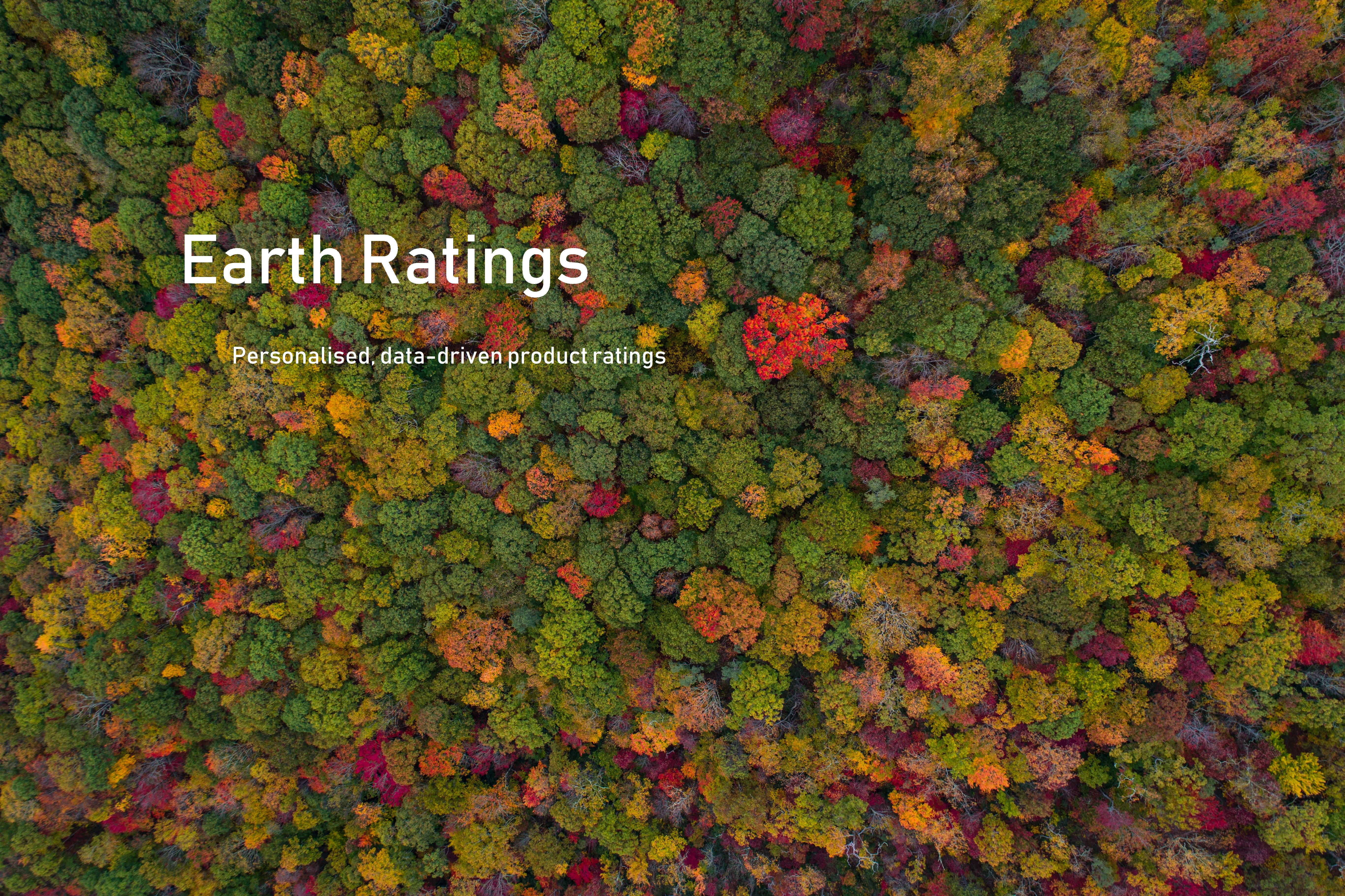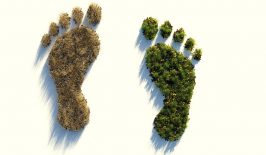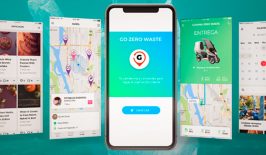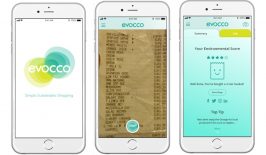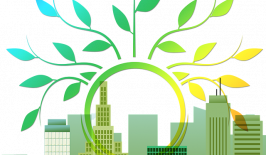Have you ever found yourself wondering how sustainable a brand really is? In a few cases you can find the answers you need in a handy article, but most of the time you’ll have to do the research yourself. Greenwashing is sadly not uncommon, and even if you can access the data it can be unreliable, confusing or incomplete. There are so many factors to take into account that it would require a lot of work to fully understand the impact of your buying choices.
Enter Earth Ratings, a free web browser plugin that does just that. Simple yet comprehensive, Earth Ratings provides online shoppers with a quick breakdown of a product’s social impact, environmental footprint, innovation and quality. RESET spoke with founder Carsten Roland to find out how the app works and why it could rewrite the rules of everyday consumerism.
Carsten shows me around the app. Once downloaded from the Earth Ratings website it pops up by Chrome’s address bar, and we use Amazon to test it out. Because the app is still in its early days we search for an item likely to be found among the 2600 brands in its database: Sony headphones. Clicking on the ER icon, a small drop-down menu shows me three numbers in red, yellow and green respectively: 20% for environment, 43% for social impact; and 90% for quality.
“If the data doesn’t come up then you can submit a request for that data to be logged,” Carsten explains. Due to the size of their team it’s been challenging to build the database, but what’s there is well-researched and comprehensive and they’re supported by third-party data providers. For example, an organisation that does computer teardowns (taking products apart to examine the components) can evaluate product quality in a way that the ER team lack the resources to do. They also work with Rankabrand, a Dutch not-for-profit that researches the sustainability of companies worldwide.
Carsten notes that when telling customers missing data could be supplied per request, they were still impatient to buy it in that moment. “As soon as there’s a little barrier of convenience even the people invested in sustainability go a bit ‘meh’…” And while a few people wanted to know the ins and outs of the data being given, “everybody else is like, ‘I want you to tell me if it’s good or bad, and I want it to be quick, easy, and look nice.’” To fulfil that desire for a minimum-effort interface, Carsten designed the app to be “super easy and visible.”
But he was surprised by other findings. The first fifteen test users were asked to submit their desired products and shopping preferences so that he could research the best options for each of them. After receiving the recommendations, “every single one of those users changed their buying decisions.” Because Carsten was catering to individual profiles they were willing to buy sustainably even if the product was more expensive – whether they were buying towels, phones or running shoes.
“It takes me forever to make buying decisions in general.”
Encouraged by this trend, Carsten chose to add personalisation to the plugin. Although using the full criteria gives a more holistic overview, users can choose to select which criteria they value most: “if you say ‘the thing I really care about is product quality – I don’t care about social impact or the environment,’ I’m not going to tell you that’s wrong. If you think sustainability is buying a product that will last the longest, then ok: we’ll give you recommendations based on that.” And quality is a concern most consumers share. “Sustainability is a niche thing.” Carsten points out. “I want to make the app more mainstream.”
In the future Earth Ratings will incorporate more types of data, such as location and circular design. These would take into account how far the product has travelled, from raw materials to the warehouse (also depending on the user’s location), and how easily the product can be recycled with a particular emphasis on certified circular programs. And in addition to a direct comparison feature, they also hope to promote different marketplaces within the app – such as the product’s own website – so that users are guided away from retailer giants like Amazon.
“What makes it worth it for me is that users will make this happen or not.”
Finally, Carsten shares an exciting financial aspect of the project. “The idea is to reinvest all the profits into what I call the ‘ecosystem,’ so we’re creating an exchange between sustainable producers and sustainable consumers.” In other words, he wants to break away from the conventional pyramid model of capitalism. “I don’t think it makes sense to operate like this anymore.” Carsten says. Under his model, if a user were to spend €100 on Earth Ratings and the app made €1000, the user could choose to send 10% of that profit to help a small-scale producer get organic certification, for example.
Explaining the inspiration behind this, Carsten says: “I have such a comfortable life. I don’t need a fancy car – it’s not going to make me happy. It really won’t! There are people who need education and clean water.” But he acknowledges this is a hard line to pitch to investors: “it doesn’t make sense for them.” And while Earth Ratings is eligible for public funding, that process is long and bureaucratic. “That’s why we’re crowdfunding to get the second version up and running.”
Ultimately, Earth Ratings exists to “reduce the barriers for people to be more conscious consumers.” In doing that they hope to create brand value for products made safely, transparently and ethically. “If you know the sneaker you’re going to buy is produced by forced child labour, or by someone who can send you a selfie and say, ‘this is my place of work and I love it’… that’s what I’m talking about!”
Earth Ratings is crowdfunding from now until the 14th of June. Visit their website to donate and find out more.
